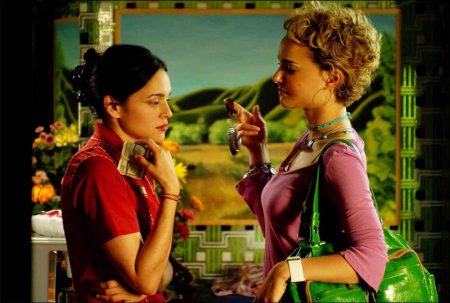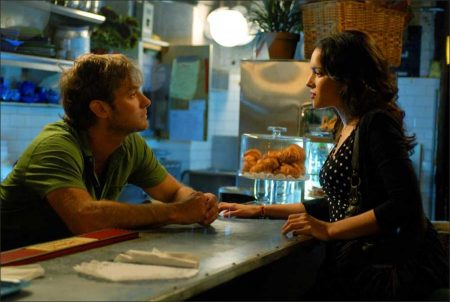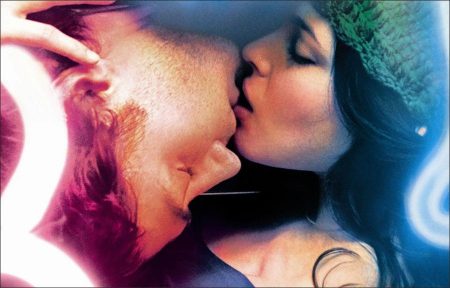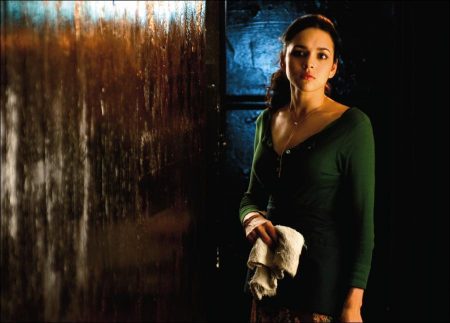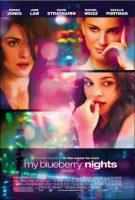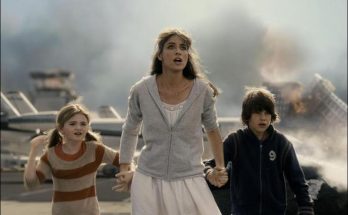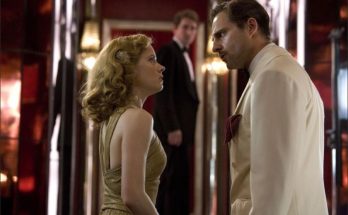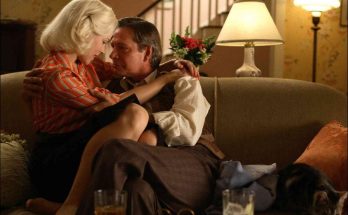Film Review for My Blueberry Nights
Anyone who has been to Las Vegas, Memphis or New York — or who has received postcards from friends in those cities — is likely to find “My Blueberry Nights,” Wong Kar-wai’s first English-language feature, wildly unrealistic, even though much of it was shot on location in the real-deal U.S.A. The smoky Tennessee juke joint and the cute little Manhattan bakery-cafe look like theme restaurants catering to the tourist trade, and even the highways snaking through the mountains and deserts have the inauthentic glow of rental-car advertisements. Mr. Wong and his cinematographer, Darius Khondji, make America look so pretty that you may have trouble recognizing it.
But to complain about the evident artificiality of Mr. Wong’s variation on the Great American Road Movie, which has shed around 20 minutes since opening the Cannes Film Festival in May, is to risk missing the point. Not only because in post-Hollywood America, as every self-respecting French philosopher knows, the simulacrum has eclipsed the thing itself.
But also because Mr. Wong, whose previous films have occasionally strayed as far from his beloved Hong Kong as Cambodia and South America, has never been especially concerned with verisimilitude. You suspect that he would hire a production designer for his summer vacation slide show. Indeed, that’s pretty much what he has done in “My Blueberry Nights” (the production designer is William Chang Suk Ping). He’s also brought along a few movie stars (Natalie Portman, Rachel Weisz, Jude Law) to make the scenery even more picturesque.
For this director a sense of place is useful only insofar as it conjures a state of feeling, and geographical coordinates are, above all, indices of atmosphere and mood. Whether the rain-spattered alleys and narrow apartment house corridors of Hong Kong in the 1960s — the setting for “In the Mood for Love” and parts of “2046” — are faithful historical re-creations is beyond irrelevant. Or at least it has been to Mr. Wong’s fervent European and North American admirers, who have elevated his couture fetish, his melancholy sensuality and his flair for arresting visual compositions into elements of a major cinematic style.
I am more inclined to think that in his recent work Mr. Wong caters to a persistent appetite for luxury, for an unabashed, free-floating glamour that can be hard to find in movies these days and that cinephiles sometimes feel guilty about craving. To claim his fashion magazine sensibility for the cause of high art is a way of ascribing nutritive value to eye candy. And why not? We all need to eat, and why shouldn’t we eat cake?
Or pie, as the case may be. Forgive the riot of sweet-shop metaphors, but “My Blueberry Nights,” which starts with a time-lapse money shot of vanilla ice cream deliquescing into the glossy fruit filling of a collapsed slice of pie, insists on its own status as a confection. Its governing metaphor may be that gooey blueberry dessert, but structurally it is a three-layer génoise, frosted with moody voice-overs, torchy songs and silky camera tricks and filmed in caramelized shades of orange and red.
Mr. Wong has always had a connoisseur’s eye for physical beauty, in particular for the faces of lovelorn men and women lighted by neon and photographed in shadow. Here he samples the exquisite cheekbones of Jude Law and the slightly haggard handsomeness of David Strathairn, but his main interest is in petite, full-lipped women in the throes of emotional unfulfillment.
The first of these is the singer Norah Jones, a good sport if not a natural actress, playing a New Yorker who goes by variations on the name Elizabeth. She starts out as Lizzie, in the midst of a bad breakup that leads her, every night at closing time, into a cute eatery run by Jeremy, a soulful expatriate Englishman played by Mr. Law. Of all the pie joints in the world, she had to walk into his.
And then, for reasons perhaps having more to do with Mr. Wong’s desire to explore new landscapes than with anything going on in Lizzie’s life, she walks out again, keeping in touch with Jeremy through postcards Ms. Jones rather affectlessly reads on the soundtrack. (The post-Cannes editing, as far as I can tell, has trimmed back on the voice-over and also on some of the slow-motion melting ice cream.)
SEE SAMPLE PRIVACY POLICY OPT OUT OR CONTACT US ANYTIME
In Memphis Lizzie waits on tables and observes the marital woes of Arnie and Sue Lynne (Mr. Strathairn and Ms. Weisz), who dutifully act out a country-and-western song about drinkin’ and cheatin’. Then it’s on to Nevada, where Ms. Portman jolts the movie (though not Ms. Jones) out of its woozy stupor, showing up as a bottle-blond gambler, her bangles and bluster deflecting attention from the depths of her loneliness and uncertainty.
Ms. Portman’s character, Leslie, arriving late in the film, provides a little kick of melodramatic unpredictability. But her engagingly direct performance — as a habitual liar, curiously enough — only underscores how affected and emotionally inert the rest of the movie has been. Ms. Jones, whose diffidence lends her musical performances an air of intrigue and seduction, does not so much fail to act as refuse to try. Her face registers degrees of strickenness and bewilderment, but she is most persuasive when she falls asleep at the counter of Jeremy’s establishment after gorging on pie.
After 90 minutes of “My Blueberry Nights,” which pass pleasantly enough, with swirly, mood-saturated colors; lovely faces; and nice music, you may feel a bit logy yourself — filled up, sugar-addled, but not really satisfied.
My Blueberry Nights (2008)
Directed by: Wong Kar Wai
Starring: Norah Jones, Jude Law, David Strathairn, Rachel Weisz, Natalie Portman, Adriane Lenox, Frankie Faison, Benjamin Kanes, Cat Power, Michael May, Michael Hartnett, Katya Blumenberg
Screenplay by: Wong Kar Wai
Production Design by: William Chang
Cinematography by: Darius Khondji
Film Editing by: William Chang
Costume Design by: Sharon Globerson
Music by: Shigeru Umebayashi
MPAA Rating: PG-13 for mature thematic material including violence, drinking and smoking.
Distributed by: The Weinstein Company
Release Date: April 4, 2008
Visits: 98
